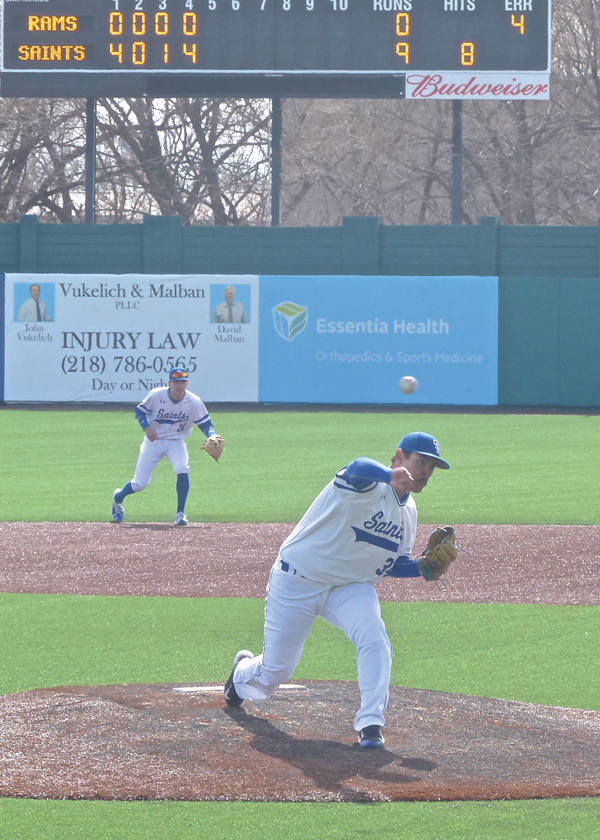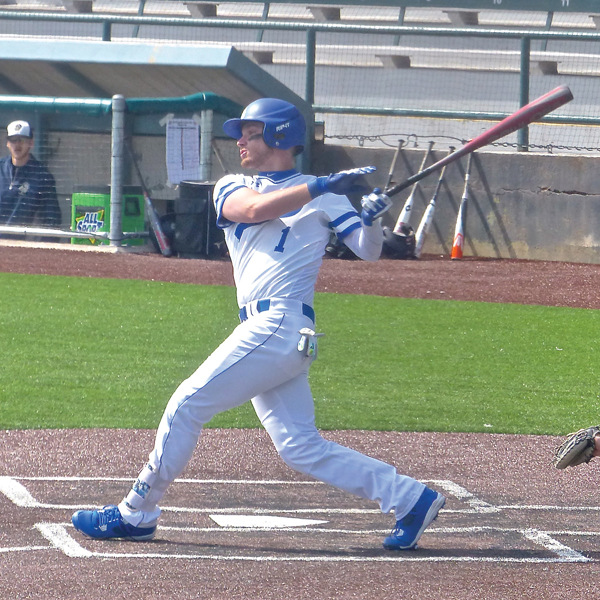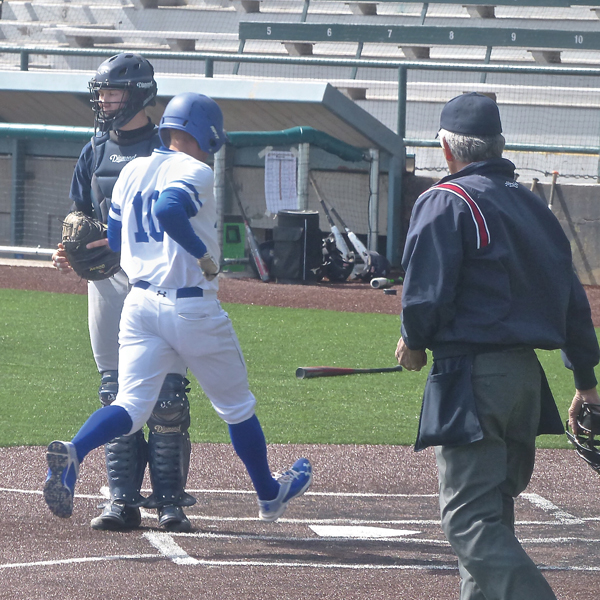News & Articles
Browse all content by date.

As of Tuesday night, two questions were haunting me: 1. Will the Minnesota Twins ever win a game? And 2. Will the Minnesota Wild win any more games this spring?
I could add a third question, which is: What happened to Jordan Spieth at the Masters? But I’ll leave that cruel final twist to Spieth’s future. Having watched him win the Masters last year with an incredible display of calm and poise, as well as skill, I got used to watching him blow away the field again this year, in his quest to win his second straight Masters before reaching age 23. Unfortunately, while he was dominating the field with a 4-stroke lead, he turned into a hooking, putt-missing monster that dragged him down into a sea of bogeys, double-bogeys, and even a quadruple-bogey, for a second-place finish behind Danny Willett.
But there’s enough to the first two questions to fill a column. Or two. Now, the Twins might well have found a way to win Wednesday night against the White Sox to break their horrible starting skid, and yes, I know, it’s a long season. More on that later.
First, the Wild.
When the Wild battled and scrapped their way into the playoffs the last couple of years, then upset a stronger team in the first round, it was immensely satisfying to hockey fans throughout Minnesota. You could almost predict it a year ago, when the arrival of Devan Dubnyk gave the Wild a rallying point, that they might upset anyone they’d face.
This season is different, however. They started off playing up to or beyond anyone’s expectations, then stalled and couldn’t score enough to beat anyone. Coach Mike Yeo, who preached disciplined, defense-first hockey, all the while encouraging his players to take more chances and score more goals, got fired in February. John Torchetti came in, and the word was he was going to open things up for more offense.
There followed one of the more exasperating roller-coaster rides, where the Wild would win a few in a row, lose a few in a row, then win a few more, then lose a few more. They clinched the eighth and final playoff spot in the West only because Colorado played significantly worse than the Wild were playing, and were put away when the Wild embarked on a season-best six-game winning streak. They followed that, however, by losing their final five games.
That’s right, the Wild go into the playoffs riding a five-game losing streak, and all they have to do is face the Dallas Stars -- the one-time North Stars– who have rebuilt into one of the best and speediest and most talented teams in the league. Wild players, right after being shut out at home by Calgary in their final game, continually responded to interview questions by saying things like, well, we’re in the playoffs now, so everything will be fine.
No, it’s not fine. Zach Parise is out, and Thomas Vanek, who has injured ribs that prevent him from shooting without pain, is also doubtful. I would have prefered that the players said, “OK, we’re in an awful losing streak, but now that the playoffs are here, we’ve got a chance to redeem ourselves and prove that we belong.” By saying and acting as though the playoffs are some magical potion that will snap them back into form, I feel great reluctance to anticipate anything more than one victory.
I hope I’m wrong, and I hope Dubnyk and the Wild surprise the Stars in Thursday night’s first game. But the wise thing to do would be to pick the Stars in five, or four. Meanwhile, the players and management might yearn for a return to the defense-first mode that Mike Yeo stressed, and which is so effective in the playoffs.
Starting Slump
Is it too soon to give up on the Minnesota Twins? That seems grossly unfair, but no more unfair than the Twins have treated their loyal fans, opening the season with the worst possible slump. Lose a couple on the opening road trip, and we can get over it. But lose all six in Baltimore and Kansas City, then come home and blow a game to the Chicago White Sox, and suddenly even diehard fans are wondering how far this Twins team is from contention.
I hate strikeouts, and even more, I hate watching a Twins batter stand in the batter’s box and take three fastballs, 1 - 2 - 3, for strikes, and go sit down. I read batting coach Tom Brunansky’s explanation that it restricts batters’ mental approach if you make them try not to strike out, so he always encourages them to swing and not worry about it.
Having coached kids from 8 or 9 up to adults, age 50 and older, and remained a serious student of the game, there are a couple of “old-school” theories that I see no reason to question. I want my hitters to swing away at any pitch they like, even if it’s over their heads or six inches outside, or ankle high. But only on the first two strikes. Then, you change your approach, shorten your swing, and try desperately to make contact. A solid single to the opposite field might win a ball game.
To suggest that a good hitter should changes his style and swing away on all three strikes is the recipe for leading the entire Major Leagues in strikeouts for three straight seasons – as the Twins have done! And it’s a perfect recipe to make Joe Mauer eliminate a lot of his opposite-field doubles to the gap and trade them for over 100 strikeouts. Mauer was one of six Twins who struck out over 100 times last season.
We all got excited to watch Miguel Sano and Byung Ho Park blast the ball out of parks all over the American League. I reserved my enthusiasm, because Sano was another one of the half dozen who struck out over 100 times last year – and Sano played in less than half of the Twins games. My question about him was, will he hit 30-35 home runs, or will he strike out 200 times?
Thankfully, Mauer looks like the Joe of old, hitting line drives instead of striking out. But in their first seven games, the Twins as a group struck out 7 times in one game, 9 in another, and 10 or more in the rest, averaging over 11 strike outs a game. If you take those 11 strikeouts every game and send those same hitters back up to the plate with a mindset of NOT striking out, the Twins would be better than 0-7.
It’s amazing how such a promising spring training could turn so sour in one week, but it’s happened. Pitcher Kyle Gibson was quoted saying maybe the Twins would win a couple, get going, and in a couple weeks nobody would even remember the 0-7 start.
Maybe. By now it’s either 1-7 or 0-8. But the Twins are one of 11 teams in Major League history to have started 0-7, and none of the others – count ’em, none – ever reached .500, let alone playoff contention.

Closer to Home
St. Scholastica has become a perennial Division III powerhouse, favored automatically to win the UMAC baseball race. The Saints played all their games on the road, while our glaciers receded, and went 10-7 overall and 2-0 in the NCHA. On Tuesday, the Saints got to take the field at Wade for their home-opening doubleheader, against UMAC rival North Central.
The Saints pounded out a 14-1 victory in the first game, and an eye-popping 21-1 romp in the second. Almost overlooked amid all the hitting was that Gino Strebing, a senior pitcher from Tucson, Ariz., who somehow found his way to Rainy River Community College on his way to St. Scholastica, threw a no-hitter in the first game.
Strebing, who was 1-1 in three appearances and had a bulbous 10.38 earned run average, reduced that by a large chunk with his seven-inning performance.
The Saints, now 12-7 over-all, and 4-0 atop the league, face Bethany Lutheran in a doubleheader on Saturday, and welcome Bethel to Wade Stadium at 1 p.m. Sunday.

| Tweet |


